- Home
- Catherine Jinks
Theophilus Grey and the Demon Thief Page 4
Theophilus Grey and the Demon Thief Read online
Page 4
A smile tugged at the corner of Garnet’s mouth. ‘And is there any news from Mr Barnwell?’ he asked drily.
‘He’s still smitten with Kitty Clive,’ Philo answered, causing a general snicker. Everyone knew about John Barnwell, a merchant’s son who seemed to spend most of his time (and money) lurking around the Theatre Royal, in pursuit of its most famous actress. ‘But she threw him off last night, so he wanted to drown his sorrows,’ Philo continued. ‘That’s why I took him to the Crown and Sceptre.’ He described the message he’d delivered to the George Inn, then explained how he had met with Cockeye McAuliffe on the way. ‘Cockeye asked me if I’d seen Jemmy Jukes. He said Jemmy had missed a meeting.’
‘Did he indeed?’ Garnet murmured. ‘And where was this?’
‘Turnstile Alley.’ Philo waited as Garnet scribbled in his ledger, then added, ‘Cockeye feared for Jemmy – or so he claimed. He warned me there was something strange abroad. Some lurking shadow—’
‘Seems to me he was covering his tracks,’ Kit interrupted. ‘Jemmy was found unconscious in Middlesex Court, you said. If you saw Cockeye in Turnstile Alley—’
‘Then there may be a link,’ Garnet finished. ‘How very interesting. But rather than proceed straight to this matter of Jemmy Jukes, I should like to hear your full report, Theophilus. From the George Inn you went . . .?’
‘To the Blue Bell. And met with Mr Paxton there.’ Philo then described their encounter with Jemmy Jukes, their trip to the workhouse, and their narrow escape from the footpads. ‘Mr Paxton has asked me to light him home in a regular way,’ he finished. ‘Tuesdays, Thursdays and Saturdays at six o’clock, for a shilling a week. I’ve said I would.’
‘I should think so!’ exclaimed Valentine Brody. For the first time that day, Val looked impressed. As someone who worked exclusively with the Irish chairmen, he never lacked for repeat business. Sedan chairs were very popular in London; a lot of people ordered the wood-and-leather boxes on a regular basis, as an alternative to hackney cabs, and the chairmen who carried them were always – quite literally – run off their feet. So Val thought himself superior to the average linkboy, and had held himself a little aloof since joining Philo’s company a year earlier, at the age of ten. He even wore a kind of livery, similar to a chairman’s, and sometimes donned his dead father’s wig. What with the wig, and the gold trim on his coat, and his sulky mouth, and his slightly scornful manner, Val hadn’t endeared himself to the other boys. But he was useful. Philo understood that. Sedan chairs were popular with lovers and debtors; you could draw the curtains on a sedan chair and no one would ever know who you were, except the chairmen and their linkboy. This meant that Val’s arrival had given Garnet a whole new source of intelligence, much of it quite valuable to the local bailiff, who was always chasing debtors.
So whenever Val sneered at Lippy, or gave himself airs, or took a day off to visit his drunken, widowed mother, Philo didn’t object.
‘A shilling a week!’ Garnet exclaimed. ‘What a generous offer! Almost excessive, in fact. What else can you tell me about Mr Paxton, Theophilus? I know he arrived in this neighbourhood about six months ago.’
‘Ah . . .’ Philo mentally reviewed the information he’d collected. ‘He used to be in the navy.’
‘Indeed?’ said Garnet, scribbling away.
‘Sometimes he works at the Lying-In Hospital,’ Philo went on. ‘He had a wife who died of a hectic fever.’
‘Mmph.’
‘He seems very . . .’ Philo trailed off, unable to find the right word. Kind? Generous? Honourable? None of these words would be well received by Garnet Hooke, who would probably find them suspicious. According to Garnet, human beings rarely did things for noble reasons. There was usually a selfish motive hidden away somewhere.
While Garnet peered at him, pen poised, Philo racked his brain before lamely concluding, ‘Mr Paxton seems very prodigal with his chink. And his time.’
Garnet nodded, coughing. He had a bad cough that always left him blue-faced and gasping for air.
Philo waited for Garnet to recover, then added, ‘I’m keen to know what befell Jemmy Jukes. And I’m keener to know who was there when it befell him. ’Tis a rare puzzle.’
‘Belike he was beat to a todge,’ said Val, ‘by Cockeye, or Scamper.’
But Philo shook his head. ‘I told you, there wasn’t a mark on him.’
‘I’m keen to know why a parish surgeon would pay a shilling for work that could be got for tuppence,’ Garnet broke in. His voice was weak and hoarse, but his gaze was as sharp as a needle. ‘It likes me not, by damn. There must be a cause. You should assay to smoke it out, Theophilus. Mark me, now – you should keep your ears pricked and your eyes wide. For I do not trust this surgeon. And we’ve good cause to keep our true business veiled from public sight.’
‘Aye, Mr Hooke, sir,’ said Philo. Then he delivered the rest of his report.
CHAPTER 5
WHAT PASSED
BETWEEN PHILO AND A YOUNG FEMALE FRIEND
After his meeting with Garnet, Philo went straight from Cucumber Alley to a pawnshop on Monmouth Street.
He took Fleabite with him.
‘Wait here,’ he told the younger boy, on reaching the shop’s threshold. ‘When I return, I want to hear what you’ve seen.’
Fleabite pouted, but didn’t argue. His blazing red hair was so memorable that Philo had decided to leave him outside, while he himself slipped quietly into the shop without attracting attention. Like every other customer, Philo was there to exchange a small package for an even smaller sum of money. In his case, however, the package didn’t contain a watch, a ring, or a pair of candlesticks. Instead it contained Garnet’s weekly report to Mr Henry Fielding, the Bow Street magistrate, who paid Garnet a regular fee for information about London’s criminals.
It was secret information, so it had to be disguised as pledged property – much as the fee had to be disguised as a loan. An hour or so after Philo’s visit, one of Mr Fielding’s constables would make an appearance at the pawnshop. While pretending to check the register for stolen goods, he would collect Garnet’s report and deliver next week’s fee. Then the pawnbroker, whose name was Archibald Duncuff, would pocket the fee until Philo called for it again, seven days later. And so the cycle went on, week after week.
Luckily, Archibald was an honest pawnbroker. He never took more than a ten-per-cent cut of Mr Fielding’s payment, and could be counted on to keep his mouth shut. In fact he hardly talked at all. He was a tall, sour, raw-boned man with eyebrows as thick as hedges, and a wig that kept sliding off his shiny bald skull. It was his wife, Bridget, who liked to gossip. This worried Philo, because he didn’t want people prying into his affairs. He didn’t want anyone knowing where he lived or what he did with himself. So he was thankful to find, when he entered the shop, that Bridget was talking to another customer.
‘Poor fellow,’ she was saying. ‘They took his tools, his scales, his silver – even his roll of velvet cloth!’
‘Gracious heaven.’ The customer shook her head sadly. Philo recognised her as a laundress from Two Brewers Yard, very small and stooped, with a face like a ball of crumpled linen. ‘First the apothecary, then the silversmith. It scarce seems possible.’
‘What’s befallen this city?’ Bridget lamented, folding her plump, red arms across her ample chest. ‘As false as hell, some folk are. Alack o’ day.’
Seeing the pawnbroker beckon to him, Philo slipped past the two women and hurried to the back of the shop. Here the walls were lined with shelves, all piled high with clothes and tools and clocks and jewellery and silver plate. A child’s doll sat on the counter next to a jug and a hatbox. Though the afternoon was sunny, the shop was so dim that the pawnbroker had lit a lamp.
‘Whose ken got milled?’ Philo asked him in a low voice, jerking his chin at Bridget.
Archibald frowned. ‘Eh?’ he said gruffly.
‘There was a silversmith robbed last night. Who was it?’
&nbs
p; Archibald gave a shrug, as if to deny any acquaintance with crime. Then he took Philo’s package without bothering to glance at its contents. ‘Three shillings,’ he droned. ‘I’ll not offer more.’
When Philo nodded, the pawnbroker reached for a pen – because Philo always took a pawn ticket away with him, even though he didn’t need one. It was all part of the pretence. While Archibald was writing, Philo glanced back at Bridget, who was clicking her tongue and shaking her head.
‘I tell you, I’m a-fretting on our own safety, with such desperate ruffians about,’ she moaned. ‘What if this here shop is the next one stripped? For the watchmen are all of ’em blockheads, and the constables not much better . . .’
‘Here.’ The pawnbroker handed Philo three shillings, which Philo stuffed deep into his breeches. On his way out of the shop, Philo noticed John Fern, the tailor, coming in. Fern carried a bundle that looked like bedclothes, and Philo made a mental note of it.
Life must be hard for John Fern, if he’d been reduced to pawning his bedclothes.
Fleabite was lounging near the pawnshop door. On catching sight of Philo, he gave a start and said, ‘I saw the rector pass by. And Mr Bambridge, the watchmaker. And a wigmaker with hair all over his clothes—’
‘Was there powder on him?’ Philo interrupted.
Fleabite shook his head.
‘Then he may have been a hair picker. You’ll always see powder on a wigmaker, hair or no.’ Standing in front of the pawnshop’s leadlight window, Philo glanced up and down the street. Though chilly, it was very dry and bright, so there were a lot of people about. Philo recognised about three-quarters of them, and could name at least half. ‘What can you tell me about that cull?’ he asked Fleabite, cocking his thumb at a figure across the road. He often played this game with his friends, especially when he was training them up. Garnet had taught it to him.
According to Garnet, there was no detail so minor that it didn’t count when you were mapping a city.
‘He has a porter’s knot on his shoulder,’ said Fleabite, peering at the man in question. ‘So he’s a porter.’
‘What class of porter?’ Philo pressed. ‘A Fellowship porter? A ticket porter?’
‘A ticket porter. He has a pewter badge.’
Philo nodded, but hadn’t finished. ‘Is he waterside or uptown?’
‘Uptown,’ said Fleabite.
‘Why?’
‘He’s carrying a dainty parcel, not whipping sacks off a river-barge.’
‘Good.’ Satisfied, Philo made a sharp right turn and headed up Phoenix Street. Picking his way through a swamp of manure and rotten food scraps, he kept his eyes peeled for anything that Garnet might find useful. Behind him, Fleabite tripped along quite happily, dodging porters and sedan chairs.
‘A mix-metal’s shop was milled last night,’ Philo remarked, as they turned into Browns Gardens. ‘I want to find out where, so keep your ears pricked.’
Fleabite gave a snappy salute. ‘Aye, Captain.’
‘Susannah might know,’ Philo went on thoughtfully. ‘I’ll ask her.’
‘Are we going to see that maunder?’
‘She’s no maunder,’ Philo said sternly. ‘She sells, she don’t beg.’
Fleabite wrinkled his nose, but didn’t comment. Together they plunged into the passage known as Lloyd’s Court – which was more like a tunnel than a lane, and so narrow that Philo had to squeeze past a poulterer who was heading in the opposite direction. The poulterer was holding a dead grouse in each hand, but even so, Philo kept his own hand firmly over his pocket until he was well clear of the alley. It paid to be careful, since the thieves of St Giles were renowned for their cunning. He knew of one woman who’d sat in a church with two fake arms propped across her stomach, while she robbed her neighbours with her real ones.
At last they emerged into a wider, sunnier street that led straight to the church of St-Giles-in-the-Fields. Though the fields themselves were long gone, there was still a churchyard, surrounded by a big iron fence. And set into that fence was the Resurrection Gate, which was a massive stone structure with a picture of the Last Judgement carved onto its lintel.
It was here that Susannah Quail could be found, from dawn till dusk, in all weathers. She was nine years old and as frail as a cobweb, with bleached skin, hands like a chicken’s claws, and pale, silky hair. It seemed to Philo that she must have been born in her draggled blue skirt and oversized stays, for he had never seen her in anything else. During the summer she sold fresh rosemary for a penny a bunch; in winter, the rosemary was dried. And because her patch was at the church gate, the churchwarden passed her regularly.
That was why Philo visited her every Tuesday, with Garnet’s report to the churchwarden tucked into the palm of his hand.
‘Susannah Quail!’ As soon as he hailed her, Susannah thrust a spray of rosemary in his direction.
‘Fine rosemary, sweet and dry!’ she chirruped. ‘Here’s rosemary, penny a bunch!’
Crossing the freestone pavement, Philo caught a whiff of corruption – and realised that there must be an open poor-hole in the churchyard. Poor-holes were dug for paupers’ remains, and were never covered until they were full. Even in winter they made their presence felt.
‘Phew! There’s a stink!’ he said loudly. ‘I’ll have a sprig o’ your wares to guard my smeller!’
With a placid smile Susannah deposited her rosemary into his outstretched hand – together with the churchwarden’s three-shilling payment. In return, she took Philo’s report. It was always the churchwarden who paid extra for the rosemary that was given to Philo. Garnet was never made to foot that bill.
‘How do you fare, Susie?’ Philo asked her. He was satisfied that no one could overhear their exchange – except for Simon Edy, the beggar, who was simple in the head and therefore of no account. Simon stood on the other side of the gate, hung with canisters full of bread, cheese, matches, books, and meat for his dog. He wore three coats and four hats, one on top of the other.
He was muttering something about the devil, which Philo ignored.
‘I’m well enough,’ Susannah replied, as she tucked the report into her basket. ‘Which is more than I can say for poor Margaret Mears.’
‘Oh, aye?’ Philo paid close attention, because he always came for more than money. Thanks to the widespread use of rosemary in sick-rooms, Susannah was a mine of information about the health of the parish. ‘Is she poorly, then?’
‘She’s dead.’
‘Dead!’
‘Of the bloody flux. Her children are on the parish now.’
Philo clicked his tongue. ‘God ha’ mercy.’
‘Her neighbour, the cow-keeper, is ailing. He’s a-bed with the gripes – or so his landlady says.’ While Susannah reeled off her sick-list, Philo committed each name to memory, thankful that Fleabite was listening too. It was a very long list.
But although it was a long list, containing two cases of dropsy, one case of the King’s Evil, several agues, two deaths from whooping cough, and a recovering pleurisy patient, Philo didn’t hear anything that sounded like Jemmy Jukes’s complaint. And when he described Jemmy’s symptoms to Susannah, she shook her head.
‘There’s nobody I know in a stupor,’ she remarked. ‘Sounds to me like a faery stroke.’
Philo blinked. ‘A what?’
‘A faery stroke. Such as you’d get from the Little People.’ As Philo stared at her, Susannah continued in her tiny, tranquil voice, ‘There’s an Irish fae called the Amadan Dubh, or Black Fool, that can stop you in your tracks with one touch.’
‘And we’ve a rare lot o’ boglanders in this parish,’ Fleabite interposed, his blue eyes bright with interest. ‘Could they have brought their elfin folk with ’em?’
‘Mr Paxton calls it apoplexy,’ said Philo. He preferred not to discuss the cunning arts; it was a subject that made him deeply uncomfortable. On the other hand, he respected Susannah’s medical expertise, which she’d gained from endless discussions with sic
k-room attendants.
‘Aye,’ Susannah agreed, ‘it could be apoplexy. Or hemlock. Or grass-pea.’
‘Herbs?’ said Philo, frowning.
‘Poisons,’ Susannah corrected. ‘But hemlock kills you quick, and grass-pea takes years.’ She fixed her mild grey gaze on Philo, then lowered her voice. ‘Some folk bring a stupor upon themselves, to commune with the spirits. And some o’ them never come back to earth afterwards.’
‘Aye – well – that’s not Jemmy,’ Philo assured her, before hastily changing the subject. ‘Have you heard aught of a gutted silversmith’s ken? It happened last night, I’m told.’
‘’Twas the Cornishman in Hog Lane,’ Susannah replied. ‘I don’t know his name.’
‘Chenoweth,’ Fleabite piped up, earning a satisfied nod from Philo.
Then a piercing scream slashed through the air.
‘Philo! Phi-i-i-lo!’
Whirling around, Philo saw Lippy Whittle charging down Denmark Street. Lippy’s nose was bloody. His shirt was torn and his hat was crooked. He bounced off an angry pie-man, staggered, reeled, then righted himself, still stumbling forward. Kit Maltman was just behind him, all flapping coat and wild hair.
‘Blood an’ ’ounds,’ Philo muttered. He hadn’t seen Lippy or Kit since leaving Cucumber Alley; Garnet had sent them straight to Soho Square, where the landlord of an illegal gaming house was being pilloried. Garnet always liked to keep a close eye on pillory crowds. People got so excited, as they threw eggs or offal or brickbats at the wretch trapped in the stocks, that they would become careless with their possessions. Scores of pickpockets would descend on the tightly packed mob, and Garnet liked to collect their names, which he could then sell to thief-takers and magistrates.
‘Lamplighters!’ Kit wailed, as he swerved towards the church. Fleabite gasped. Philo shot a quick look at the church doors.

 The Paradise Trap
The Paradise Trap A Very Singular Guild
A Very Singular Guild Eloise
Eloise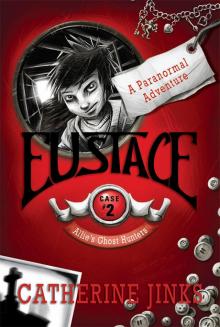 Eustace
Eustace A Very Peculiar Plague
A Very Peculiar Plague Pagan's Crusade
Pagan's Crusade The Gentleman's Garden
The Gentleman's Garden Pagan's Vows
Pagan's Vows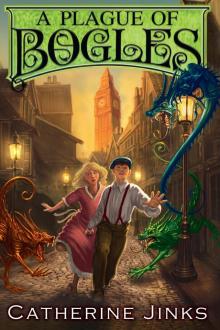 A Plague of Bogles
A Plague of Bogles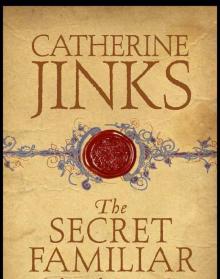 The Secret Familiar
The Secret Familiar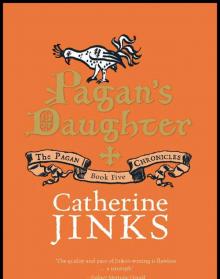 Pagan's Daughter
Pagan's Daughter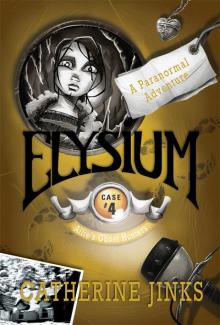 Elysium
Elysium The Reformed Vampire Support Group
The Reformed Vampire Support Group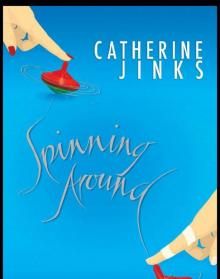 Spinning Around
Spinning Around Pagan's Scribe
Pagan's Scribe Evil Genius
Evil Genius Pagan in Exile
Pagan in Exile Shepherd
Shepherd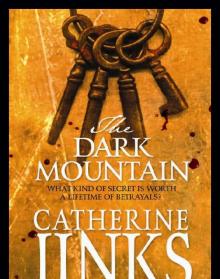 The Dark Mountain
The Dark Mountain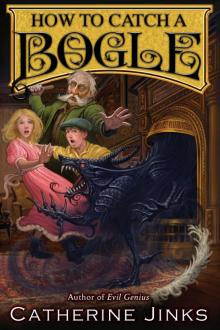 How to Catch a Bogle
How to Catch a Bogle Saving Thanehaven
Saving Thanehaven The Genius Wars
The Genius Wars The Abused Werewolf Rescue Group
The Abused Werewolf Rescue Group Theophilus Grey and the Traitor's Mask
Theophilus Grey and the Traitor's Mask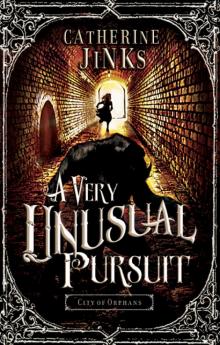 A Very Unusual Pursuit
A Very Unusual Pursuit Genius Squad
Genius Squad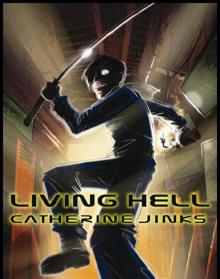 Living Hell
Living Hell The Road
The Road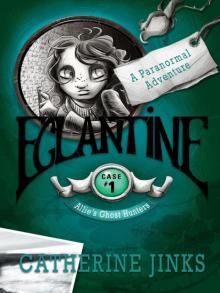 Eglantine
Eglantine